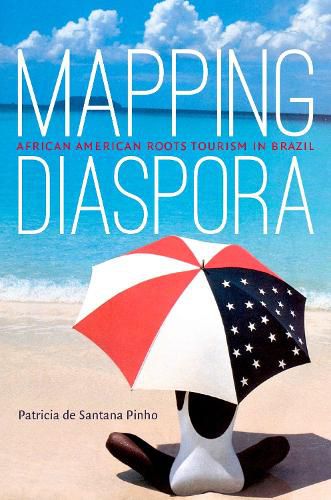Readings Newsletter
Become a Readings Member to make your shopping experience even easier.
Sign in or sign up for free!
You’re not far away from qualifying for FREE standard shipping within Australia
You’ve qualified for FREE standard shipping within Australia
The cart is loading…






Brazil, like several countries in Africa, has become a major destination for African American tourists seeking the cultural roots of the black Atlantic diaspora. Drawing on over a decade of ethnographic research as well as textual, visual, and archival sources, Patricia de Santana Pinho investigates African American roots tourism, a complex, poignant kind of travel that provides profound personal and collective meaning for those searching for black identity and heritage. It also provides, as Pinho’s interviews with Brazilian tour guides, state officials, and Afro-Brazilian activists reveal, economic and political rewards that support a structured industry.
Pinho traces the origins of roots tourism to the late 1970s, when groups of black intellectuals, artists, and activists found themselves drawn especially to Bahia, the state that in previous centuries had absorbed the largest number of enslaved Africans. African Americans have become frequent travelers across what Pinho calls the
map of Africanness
that connects diasporic communities and stimulates transnational solidarities while simultaneously exposing the unevenness of the black diaspora. Roots tourism, Pinho finds, is a fertile site to examine the tensions between racial and national identities as well as the gendered dimensions of travel, particularly when women are the major roots-seekers.
$9.00 standard shipping within Australia
FREE standard shipping within Australia for orders over $100.00
Express & International shipping calculated at checkout
Brazil, like several countries in Africa, has become a major destination for African American tourists seeking the cultural roots of the black Atlantic diaspora. Drawing on over a decade of ethnographic research as well as textual, visual, and archival sources, Patricia de Santana Pinho investigates African American roots tourism, a complex, poignant kind of travel that provides profound personal and collective meaning for those searching for black identity and heritage. It also provides, as Pinho’s interviews with Brazilian tour guides, state officials, and Afro-Brazilian activists reveal, economic and political rewards that support a structured industry.
Pinho traces the origins of roots tourism to the late 1970s, when groups of black intellectuals, artists, and activists found themselves drawn especially to Bahia, the state that in previous centuries had absorbed the largest number of enslaved Africans. African Americans have become frequent travelers across what Pinho calls the
map of Africanness
that connects diasporic communities and stimulates transnational solidarities while simultaneously exposing the unevenness of the black diaspora. Roots tourism, Pinho finds, is a fertile site to examine the tensions between racial and national identities as well as the gendered dimensions of travel, particularly when women are the major roots-seekers.